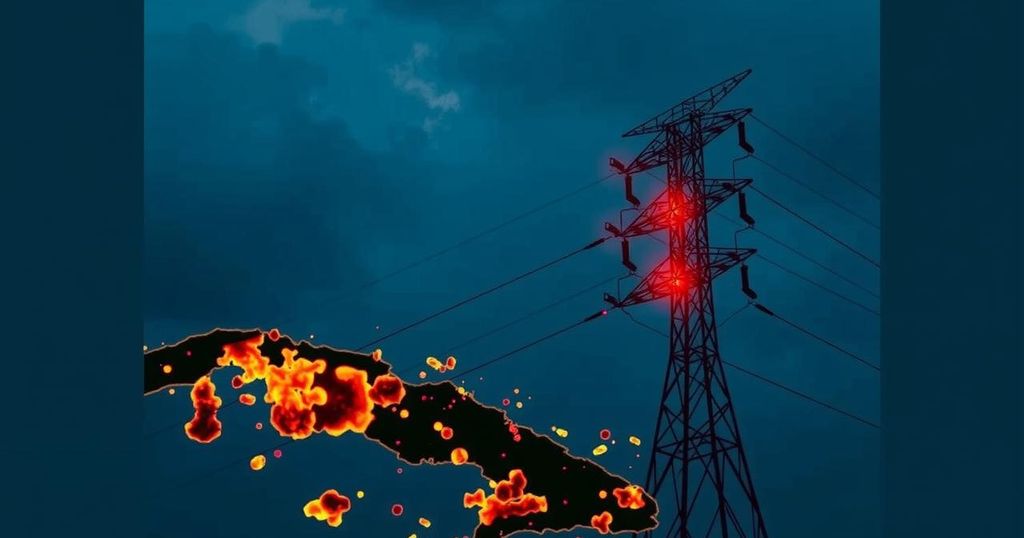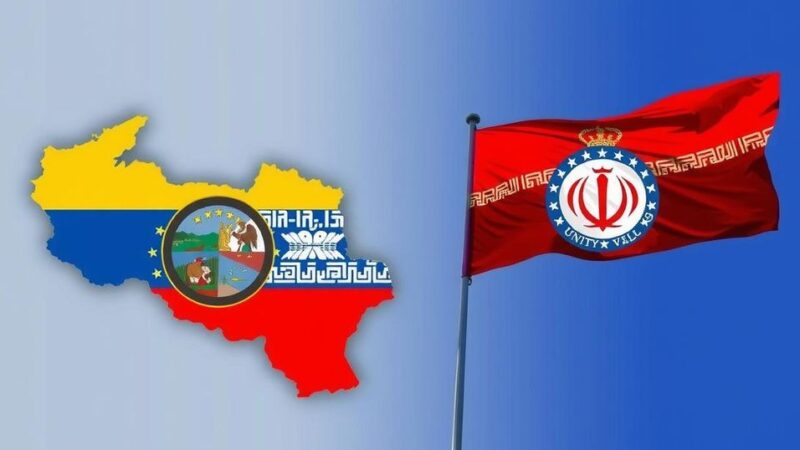Cuba is experiencing its third consecutive day of widespread power outages affecting millions, following failures in its aging energy grid amid the impending approach of Hurricane Oscar. The outages threaten essential services and public welfare as residents seek help and share updates amidst increasing frustration.
As of Sunday, millions of Cubans have been without electricity for three consecutive days following unsuccessful attempts to restore power. The Cuban Electrical Union reported that approximately 16% of the country had their electricity restored before the aging energy grid collapsed once again on Saturday night. This situation represents the third significant failure of Cuba’s power grid since Friday, disrupting electricity for the vast majority of the nation’s 10 million residents. The situation is further complicated by the impending arrival of Hurricane Oscar, which is making its way toward the eastern coast of Cuba, expected to bring strong winds and rough seas. Hurricane Oscar, which made landfall on Inagua Island in the Bahamas with maximum sustained winds of 80 mph, is anticipated to hit northeastern Cuba later today. It is predicted to weaken after landfall but may still be classified as a tropical storm when it moves northward after passing Cuba. The initial widespread blackout occurred last Friday due to a malfunction in one of the country’s principal power plants. Despite a temporary restoration of power, the nation encountered a second blackout early Saturday morning. The repeated power outages exacerbate an already precarious situation, as reliable electricity is crucial for maintaining water supplies and preserving food. In response to the crises, residents of Havana have taken to online platforms like WhatsApp to share updates on which neighborhoods have access to power, and many are coordinating efforts to preserve medication in refrigerators while others have access to generators. The bread supply in the capital has dwindled, prompting lengthy lines and disputes among residents who felt overlooked amidst the scarcity. Some citizens expressed concern over the absence of traditional allies, including Venezuela, Russia, and Mexico, who have previously supplied the island with essential oil resources to keep the power running. Tourists in Havana can still be observed in vintage cars, though many hotels face fuel shortages for their generators. Reports suggest that Havana’s José Martí International Airport is operating on emergency power, with significant operational challenges such as non-functional printers and a lack of air conditioning. Protests against the shortages have reportedly occurred, reflecting growing discontent among the populace. Cuban officials attribute the current energy crisis to a combination of factors, such as enhanced US economic sanctions, disruptions from recent hurricanes, and the dilapidated state of the country’s infrastructure. In a public address, Prime Minister Manuel Marrero Cruz stated, “We have been paralyzing economic activity to generate power to the population.” Health Minister José Angel Portal Miranda informed that health facilities are dependent on generators to provide essential services. This energy crisis threatens to deepen Cuba’s already chronic difficulties, stressing the urgent need for comprehensive solutions to restore electricity and ensure the welfare of its citizens.
Cuba’s energy grid has faced chronic issues, compounded lately by heightened economic sanctions imposed by the United States, issues related to recent natural disasters, and an overall dilapidation of infrastructure. The current crisis, marked by widespread blackouts, not only disrupts daily life but also jeopardizes public health and welfare, as many services rely heavily on electricity.
The recent power outages affecting millions of Cubans underscore a growing crisis exacerbated by natural and man-made challenges. With Hurricane Oscar approaching, the need for a reliable energy solution is even more pressing as communities struggle to maintain essential services. The government’s response to the crisis continues to evolve amid mounting public frustration and the urgent need for international support.
Original Source: www.cnn.com






